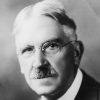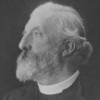In youth our judgments are obscured by our hopes; in age, by our regrets.
Paul Eldridge (1888-1982) American educator, novelist, poet
Maxims for a Modern Man, #144 (1965)
(Source)
Quotations about:
judgment
Note not all quotations have been tagged, so Search may find additional quotes on this topic.
Whose house is of glasse, must not throw stones at another.
George Herbert (1593-1633) Welsh priest, orator, poet.
Jacula Prudentum, or Outlandish Proverbs, Sentences, &c. (compiler), # 196 (1640 ed.)
(Source)
Finally, stick to the advice your own heart gives you, no one can be truer to you than that; since a man’s soul often forewarns him better than seven watchmen perched on a watchtower.
The Bible (The Old Testament) (14th - 2nd C BC) Judeo-Christian sacred scripture [Tanakh, Hebrew Bible], incl. the Apocrypha (Deuterocanonicals)
Sirach (Ecclesiasticus) 37:13-14 [JB (1966)]
(Source)
Alternate translations:
And let the counsel of thine own heart stand: for there is no man more faithful unto thee than it. For a man's mind is sometime wont to tell him more than seven watchmen, that sit above in an high tower.
[KJV (1611)]
And establish within thyself a heart of good counsel: for there is no other thing of more worth to thee than it. The soul of a holy man discovereth sometimes true things, more than seven watchmen that sit in a high piece to watch.
[DRA (1899); 37:17-18]
And trust your own judgment; no one's advice is more reliable. Sometimes your own intuition can tell you more than seven watchmen on a high tower.
[GNT (1976)]
And heed the counsel of your own heart, for no one is more faithful to you than it is. For our own mind sometimes keeps us better informed than seven sentinels sitting high on a watchtower.
[NRSV (1989 ed.)]
That was excellently observed, say I, when I read a passage in an author, where his opinion agrees with mine. When we differ, there I pronounce him to be mistaken.
Jonathan Swift (1667-1745) English writer and churchman
“Thoughts on Various Subjects” (1706)
(Source)
For when the One Great Scorer comes to mark against your name,
He writes — not that you won or lost — but how you played the Game.
Every good human quality is related to a bad one into which it threatens to pass over; and every bad quality is similarly related to a good one. The reason we so often misunderstand people is that when we first make their acquaintance we mistake their bad qualities for the related good ones, or vice versa: thus a prudent man will seem cowardly, a thrifty one avaricious; or a spendthrift will seem liberal, a boor frank and straightforward, an impudent fellow full of noble self-confidence, and so on.
[Jede menschliche Vollkommenheit ist einem Fehler verwandt, in welchen überzugehn sie droht; jedoch auch, umgekehrt, jeder Fehler, einer Vollkommenheit. Daher beruht der Irrthum, in welchen wir, hinsichtlich eines Menschen, gerathen, oft darauf, daß wir, im Anfang der Bekanntschaft, seine Fehler mit den ihnen verwandten Vollkommenheiten verwechseln, oder auch umgekehrt: da scheint uns dann der Vorsichtige feige, der Sparsame geizig; oder auch der Verschwender liberal, der Grobian gerade und aufrichtig, der Dummdreiste als mit edelem Selbstvertrauen auftretend, u. dgl. m]
Arthur Schopenhauer (1788-1860) German philosopher
Parerga and Paralipomena, Vol. 2, ch. 8 “On Ethics [Zur Ethik],” § 113 (1851) [tr. Hollingdale (1970)]
(Source)
(Source (German)). Alternate translation:
Every human perfection is allied to a defect into which it threatens to pass; but it is also true that every defect is allied to a perfection. Hence it is that if, as often happens, we make a mistake about a man, it is because at the beginning of our acquaintance with him we confound his defects with the kinds of perfection to which the are allied. The cautious man seems to us a coward; the economical man, a miser; the spendthrift seems liberal; the rude fellow, downright and sincere; the foolhardy person looks as if he were going to work with a noble self-confidence, and so on in many other case.
[tr. Saunders (1890), "On Human Nature"]
Every human perfection is akin to a fault into which it threatens to pass; conversely, however, every fault is akin to a perfection. And so the error into which we fall in respect of a man is often due to the fact that, at the beginning of our acquaintance, we confuse his faults with the perfections akin to them, or vice versa. The cautious man then seems to us to be cowardly, the thrifty to be avaricious; or again, the spendthrift appears to be liberal, the lout straightforward and sincere, the foolhardy to be endowed with noble self-confidence, and so on.
[tr. Payne (1974)]
Every human perfection is linked to an error which it threatens to turn into.
[Source]
Whenever I meet Ukridge’s Aunt Julia I have the same curious illusion of having just committed some particularly unsavoury crime and — what is more — of having done it with swollen hands, enlarged feet, and trousers bagging at the knee on a morning when I had omitted to shave.
When man appears before the Throne of Judgment, the first question he is asked is not: “Have you believed in God?” or “Have you prayed and observed the ritual?” He is asked: “Have you dealt honorably and faithfully in all your dealings with your fellow man?”
But Yahweh said to Samuel, “Take no notice of his appearance or his height for I have rejected him; God does not see as man sees; man looks at appearances but Yahweh looks at the heart.”
The Bible (The Old Testament) (14th - 2nd C BC) Judeo-Christian sacred scripture [Tanakh, Hebrew Bible], incl. the Apocrypha (Deuterocanonicals)
1 Samuel 16:7 [JB (1966)]
(Source)
God rejecting Eliab (and all of David's other brothers) to be the next king. Alternate translations:
But the Lord said unto Samuel, Look not on his countenance, or on the height of his stature; because I have refused him: for the Lord seeth not as man seeth; for man looketh on the outward appearance, but the Lord looketh on the heart.
[KJV (1611)]
But the Lord said to him, “Pay no attention to how tall and handsome he is. I have rejected him, because I do not judge as people judge. They look at the outward appearance, but I look at the heart.”
[GNT (1976)]
But the Lord said to Samuel, “Do not look on his appearance or on the height of his stature, because I have rejected him, for the Lord does not see as mortals see; they look on the outward appearance, but the Lord looks on the heart.”
[NRSV (1989)]
Among the smaller duties of life I hardly know any one more important than that of not praising where praise is not due.
Sydney Smith (1771-1845) English clergyman, essayist, wit
Elementary Sketches of Moral Philosophy, Lecture 9 “On the Conduct of Understanding” (1849)
(Source)
Based on a lecture in a series given at the Royal Institution (1804-1806).
Science is a way of trying not to fool yourself. The first principle is that you must not fool yourself, and you are the easiest person to fool.
The public buys its opinions as it buys its meat, or takes in its milk, on the principle that it is cheaper to do this than to keep a cow. So it is, but the milk is more likely to be watered.
For of those to whom much is given, much is required. And when at some future date the high court of history sits in judgment on each of us — recording whether in our brief span of service we fulfilled our responsibilities to the state — our success or failure, in whatever office we hold, will be measured by the answers to four questions:
First, were we truly men of courage — with the courage to stand up to one’s enemies — and the courage to stand up, when necessary, to one’s associates — the courage to resist public pressure, as well as private greed?
Secondly, were we truly men of judgment — with perceptive judgment of the future as well as the past — of our mistakes as well as the mistakes of others — with enough wisdom to know what we did not know and enough candor to admit it.
Third, were we truly men of integrity — men who never ran out on either the principles in which we believed or the men who believed in us — men whom neither financial gain nor political ambition could ever divert from the fulfillment of our sacred trust?
Finally, were we truly men of dedication — with an honor mortgaged to no single individual or group, and comprised of no private obligation or aim, but devoted solely to serving the public good and the national interest?
Courage — judgment — integrity — dedication — these are the historic qualities … which, with God’s help … will characterize our Government’s conduct in the four stormy years that lie ahead.
John F. Kennedy (1917-1963) US President (1961-63)
Address to the Massachusetts legislature (9 Jan 1961)
(Source)
As President-elect. The reference is to Luke 12:48.
Competence, like truth, beauty and contact lenses, is in the eye of the beholder.
Lawrence J. Peter (1919-1990) American educator, management theorist
The Peter Principle (1969)
See Richard Cumberland.
The true rule, in determining to embrace, or reject any thing, is not whether it have any evil in it; but whether it have more of evil, than of good. There are few things wholly evil, or wholly good. Almost every thing, especially of governmental policy, is an inseparable compound of the two; so that our best judgment of the preponderance between them is continually demanded.
Abraham Lincoln (1809-1865) American lawyer, politician, US President (1861-65)
Remarks, House of Representatives (1848-06-20)
(Source)
Speaking on internal improvements (infrastructure) as part of governmental policy.
Life is made up of a series of judgments on insufficient data, and if we waited to run down all our doubts, it would flow past us.
Learned Hand (1872-1961) American jurist
“On Receiving an Honorary Degree,” speech, Harvard University (1939-01-22)
(Source)
First printed in the Harvard Alumni Bulletin (7 Jul 1939)
ARCHBISHOP:O thoughts of men accursed!
Past and to come seems best; things present, worst.William Shakespeare (1564-1616) English dramatist and poet
Henry IV, Part 2, Act 1, sc. 3, l. 112ff (1.3.112-113) (c. 1598)
(Source)
Judge not, that ye be not judged. For with what judgment ye judge, ye shall be judged; and with what measure ye mete, it shall be measured to you again.
The Bible (The New Testament) (AD 1st - 2nd C) Christian sacred scripture
Matthew 7:1-2 (KJV)
Alt. trans.:
- "Do not judge, so that you may not be judged. For with the judgment you make you will be judged, and the measure you give will be the measure you get."(NRSV)
- "Do not judge, or you too will be judged. For in the same way you judge others, you will be judged, and with the measure you use, it will be measured to you." (NIV)
- "Do not judge others, so that God will not judge you, for God will judge you in the same way you judge others, and he will apply to you the same rules you apply to others." (GNT)
Each man must use his own judgement.
[Suo cuique iudicio est utendum.]
Marcus Tullius Cicero (106-43 BC) Roman orator, statesman, philosopher
De Natura Deorum, Book 3, ch. 1 [tr. Rackham (1933)]
(Source)
The happiness of your life depends upon the quality of your thoughts: therefore, guard accordingly, and take care that you entertain no notions unsuitable to virtue and reasonable nature.
Marcus Aurelius (AD 121-180) Roman emperor (161-180), Stoic philosopher
Meditations, Book 3, #9 [tr. Collier (1701)]
(Source)
Alternate translations:
- "Use thine opinative faculty with all honour and respect, for in her indeed is all: that thy opinion do not beget in thy understanding anything contrary to either nature, or the proper constitution of a rational creature." [tr. Casaubon (1634), #10]
- "Reverence the faculty which produces opinion. On this faculty it entirely depends whether there shall exist in thy ruling part any opinion inconsistent with nature and the constitution of the rational animal." [tr. Long (1862)]
- "Hold in honor your opinionative faculty, for this alone is able to prevent any opinion from originating in your guiding principle that is contrary to Nature or the proper constitution of a rational creature." [tr. Zimmern (1887)]
- "Reverence your faculty of judgement. On this it entirely rests that your governing self no longer has a judgement disobedient to Nature and to the estate of a reasonable being." [tr. Farquharson (1944)]
Never judge someone by who he’s in love with; judge him by his friends. People fall in love with the most appalling people. Take a cool, appraising glance at his pals.
Cynthia Heimel (1947-2018) American feminist, humorist, writer
But Enough about You (1986)
(Source)
A "Sister Soignée" quote.
Certainly, Gentlemen, it ought to be the happiness and glory of a representative to live in the strictest union, the closest correspondence, and the most unreserved communication with his constituents. Their wishes ought to have great weight with him; their opinions high respect; their business unremitted attention. It is his duty to sacrifice his repose, his pleasure, his satisfactions, to theirs, — and above all, ever, and in all cases, to prefer their interest to his own.
But his unbiased opinion, his mature judgment, his enlightened conscience, he ought not to sacrifice to you, to any man, or to any set of men living. These he does not derive from your pleasure, — no, nor from the law and the Constitution. They are a trust from Providence, for the abuse of which he is deeply answerable. Your representative owes you, not his industry only, but his judgment; and he betrays, instead of serving you, if he sacrifices it to your opinion.
If you are pained by external things, it is not they that disturb you, but your own judgment of them. And it is in your power to wipe out that judgment now.
Marcus Aurelius (AD 121-180) Roman emperor (161-180), Stoic philosopher
Meditations, Book 8, #47 [tr. Long (1862)]
(Source)
Modernized version (see below for original). Alternate translations:
- "If therefore it be a thing external that causes thy grief, know, that it is not that properly that doth cause it, but thine own conceit and opinion concerning the thing: which thou mayest rid thyself of, when thou wilt." [tr. Casaubon (1634), #45]
- "If externals put you into the spleen, take notice 'tis not the thing which disturbs you, but your notion about it: which notion you may dismiss if you please." [tr. Collier (1701)]
- "If thou art pained by any external thing, it is not this thing that disturbs thee, but thy own judgment about it. And it is in thy power to wipe out this judgment now." [tr. Long (1862), original]
- "If anything external vexes you, take notice that it is not the thing which disturbs you, but your notion about it, which notion you may dismiss at once if you please." [tr. Zimmern (1887)]
- "If you suffer pain because of some external cause, what troubles you is not the thing but your decision about it, and this it is in your power to wipe out at once." [tr. Farquharson (1944)]
- "If you are distressed by anything external, the pain is not due to the thing yourself but to your estaimte of it; and this you have the power to revoke at any moment." [tr. Staniforth (1964)]
After all, when the day of judgement comes we shall be examined about what we have done, not about what we have read; whether we have lived conscientiously, not whether we have turned fine phrases.
[Certe adveniente die judicii, non quæretur a nobis quid legimus, sed quid fecimus; nec quam bene diximus, sed quam religiose viximus.]
Thomas à Kempis (c. 1380-1471) German-Dutch priest, author
The Imitation of Christ [De Imitatione Christi], Book 1, ch. 3, v. 5 (1.3.5) (c. 1418-27) [tr. Knox-Oakley (1959)]
(Source)
(Source (Latin)). Alternate translations:
At the day of judgment it shall not be asked of us what we have read, but what we have done: nor how well we have said, but how religiously we have lived.
[tr. Whitford/Raynal (1530/1871)]
On the day of judgment we will not be asked what we have read, but what we have done; not how well we have discoursed, but how religiously we have lived.
[tr. Whitford/Gardiner (1530/1955)]
Assuredly at the day of judgment we shall not be examined how many bookes we have read, but how many good workes we have done; not how rhetorically we have spoken, but how religiously we have lived.
[tr. Page (1639), 1.3.22]
A Day of Judgment there will come, where in Measures will be taken very different form ours; when the Enquiry, upon which our Affairs must all turn, will be, not how much we have Heard or Read, but how much we have done; not how Eloquent our Expressions, but how Pure and Devout our Lives; how much our Manners, not our Capacity or Breeding, our Wit or Rhetorick, distinguished us from common Men.
[tr. Stanhope (1696; 1706 ed.)]
Assuredly, in the approaching day of universal judgment, it will not be enquired what we have read, but what we have done; not how eloquently we have spoken, but how holily we have lived.
[tr. Payne (1803)]
Truly, at the day of judgment we shall not be examined what we have read, but what we have done; not how well we have spoken, but how religiously we have lived.
[ed. Parker (1841)]
Assuredly, in the approaching day of judgment, it will not be inquired of us what we have read, but what we have done; not how eloquently we have spoken, but how holily we have lived.
[tr. Dibdin (1851)]
Verily, when the day of judgment comes, we shall not be asked what we have read, but what we have done; nor how well we have spoken, but how religiously we have lived.
[ed. Bagster (1860)]
Of a surety, at the Day of Judgment it will be demanded of us, not what we have read, but what we have done; not how well we have spoken, but how holily we have lived.
[tr. Benham (1874)]
Truly, at the day of judgment we shall not be examined as to what we have read, but as to what we have done; not as to how well we have spoken, but as to how religiously we have lived.
[tr. Anon. (1901)]
On the day of judgment, surely, we shall not be asked what we have read but what we have done; not how well we have spoken but how well we have lived.
[tr. Croft/Bolton (1940)]
Surely on coming to the day of judgment we shall not be asked what we have read but what we have done: not how well we talked but how religiously we lived.
[tr. Daplyn (1952)]
At the Day of Judgement, we shall not be asked what we have read, but what we have done; not how eloquently we have spoken, but how holily we have lived.
[tr. Sherley-Price (1952)]
When the day of judgment comes, we shall not be asked what we have read, but what we have done, not if we made fine speeches, but if we lived religious lives.
[tr. Knott (1962)]
When the day of judgement comes we will be asked not what books we read, but what deeds we did, not how well we spoke, but how religiously we lived.
[tr. Rooney (1979)]
Surely, when the day of judgment comes we shall not be asked what we have read but what we have done, not how well we have spoken but how devoutly we have lived.
[tr. Creasy (1989)]
Perhaps the sentiments contained in the following pages, are not YET sufficiently fashionable to procure them general favour; a long habit of not thinking a thing WRONG, gives it a superficial appearance of being RIGHT, and raises at first a formidable outcry in defense of custom. But the tumult soon subsides. Time makes more converts than reason.
Thomas Paine (1737-1809) American political philosopher and writer
Common Sense (14 Feb 1776)
Source essay
We judge ourselves by what we feel capable of doing, while others judge us by what we have already done.
No individual or group will be judged by whether they come up to or fall short of some fixed result, but by the direction in which they are moving. The band mans is the man who no matter how good he has been is beginning to deteriorate, to grow less good. The good man in the man who no matter how morally unworthy he has been is moving to become better. Such a conception makes one severe in judging himself and humane in judging others.
John Dewey (1859-1952) American teacher and philosopher
Reconstruction in Philosophy, ch. 7 “Moral Reconstruction” (1919)
(Source)
And I know of the Future Judgment,
How dreadful soe’er it be,
That to sit alone with my Conscience
Will be Judgment enough for me.Charles William Stubbs (1845-1912) British cleric (Bishop of Truro)
“The Judgment of Conscience,” st. 13, Bryhtnoth’s Prayer and Other Poems (1899)
(Source)
GILES: Grave robbing? That’s new, interesting.
BUFFY: I know you meant to say ‘gross and disturbing.’
GILES: Yes, of course. It’s a terrible thing, must put a stop to it.David Tyron "Ty" King (b. 1959) American screenwriter, television producer
Buffy the Vampire Slayer, 2×02 “Some Assembly Required” (1997)
People who like this sort of thing will find this the sort of thing they like.
Abraham Lincoln (1809-1865) American lawyer, politician, US President (1861-65)
(Attributed)
One of the earliest references to something like this was in an 1863 newspaper ad for Lincoln’s favorite humorist, Artemus Ward, that included this faux testimonial (possibly written by Ward): “I have never heard any of your lectures, but from what I can learn I should say that for people who like the kind of lectures you deliver, they are just the kind of lectures such people like. Yours respectfully, O. Abe.”
Quoted in G.W.E. Russell, Collections and Recollections, ch. 30 (1898), regarding “an unreadably sentimental book.”
According to Anthony Gross, Lincoln’s Own Stories (1902), Lincoln’s was speaking to Robert Dale Owen, who had insisted on reading to Lincoln a long manuscript on spiritualism. "Well, for those who like that sort of thing, I should think it is just about the sort of thing they would like."
In Emanual Hertz, ed., "Father Abraham," Lincoln Talks: A Biography in Anecdote (1939), the response was to a young poet asking him about his newly published poems.
More discussion of this quotation: Ralph Keyes, The Quote Verifier.
He who is only just is cruel. Who on earth could live were all judged justly?
George Gordon, Lord Byron (1788-1824) English poet
Arino Faliero, Doge of Venice, Act 5, sc. 1 [Angiolina] (1820)
(Source)
When Miss Manners observes people behaving rudely, she never steps in to correct them. She behaves politely to them, and then goes home and snickers about them afterward. That is what the well-bred person does.
Judith Martin (b. 1938) American author, journalist, etiquette expert [a.k.a. Miss Manners]
Miss Manners’ Guide to Excruciatingly Correct Behavior, Introduction (1983)
(Source)
Blame-all and Praise-all are two blockheads.
Benjamin Franklin (1706-1790) American statesman, scientist, philosopher, aphorist
Poor Richard (1734 ed.)
(Source)
I have no use for the strictures of You must. You must not.
[無可無不可]
Confucius (c. 551- c. 479 BC) Chinese philosopher, sage, politician [孔夫子 (Kǒng Fūzǐ, K'ung Fu-tzu, K'ung Fu Tse), 孔子 (Kǒngzǐ, Chungni), 孔丘 (Kǒng Qiū, K'ung Ch'iu)]
The Analects [論語, 论语, Lúnyǔ], Book 18, verse 8 (18.8.5) (6th C. BC) [ed. Lao-Tse, tr. Hinton (1998)]
(Source)
(Source (Chinese)). Alternate translations:
I have no course for which I am predetermined, and no course against which I am predetermined.
[tr. Legge (1861)]
I will take no liberties, I will have no curtailing of my liberty.
[tr. Jennings (1895); in the footnote he gives a more raw translation, "Without possibilities (or freedom to act) -- without impossibilities"]
With me there is no inflexible "thou shalt" or 'thou shalt not."
[tr. Soothill (1910)]
I have no categoric can and cannot.
[tr. Pound (1933)]
I have no "thou shalt" or "thou shalt not."
[tr. Waley (1938)]
I accept life as it comes. [tr. Ware (1950)]I have no preconceptions about the permissible and the impermissible.
[tr. Lau (1979)]
I avoid saying what should or should not be done.
[tr. Dawson (1993)]
I follow no rigid prescriptions on what should, or should not, be done.
[tr. Leys (1997)]
I have neither favorable nor unfavorable situation. [tr. Huang (1997)]I have not any stubborn positiveness or negation.
[tr. Cai/Yu (1998)]
I do not have presuppositions as to what may and may not be done.
[tr. Ames/Rosemont (1998)]
I have no "may" and no "may not."
[tr. Brooks/Brooks (1998)]
I have no preconceptions about what one can or cannot do.
[tr. Annping Chin (2014)]
This may be the source of Lin-Yutang, ed. The Wisdom of Confucius (1938):
The superior man goes through his life without any one preconceived course of action or any taboo. He merely decides for the moment what is the right thing to do.
But regardless of whether Hitler or the mass murderer of your choice sincerely regretted his actions in his last moments and made it to Heaven, with all due respect, what difference does it make to you? Apart from the awkward silence if you happen to bump into him there, I mean.
It is the Property of Fools, to be always judging.
Thomas Fuller (1654-1734) English physician, preacher, aphorist, writer
Gnomologia: Adages and Proverbs, #3027 (1732)
(Source)






































